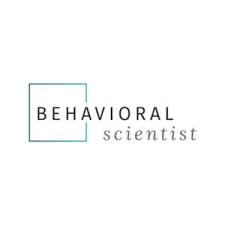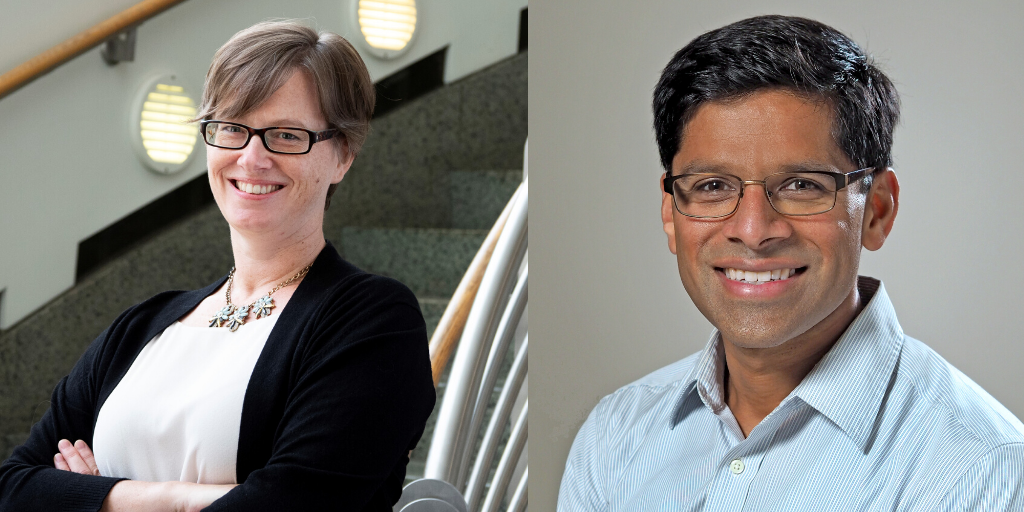CHIBE Members Appear in Behavioral Scientist’s “Imagining the Next Decade of Behavioral Science”

As we enter the 2020s, Behavioral Scientist put together a collection of ideas about what the next decade of behavioral science will tackle. The online magazine called for “hopes, fears, predictions, open questions, and big ideas” and received more than 120 submissions.
CHIBE Associate Directors Alison Buttenheim, PhD, MBA, and Harsha Thirumurthy, PhD, as well as George Loewenstein, PhD, a member of CHIBE’s leadership team, and Katy Milkman, PhD, a CHIBE-affiliated faculty member, were featured in this collection titled “Imagining the Next Decade of Behavioral Science.” See their projects and ideas below.
From Drs. Buttenheim and Thirumurthy:

“South Africa has the world’s largest HIV epidemic, with 7.2 million HIV-positive people, 19 percent HIV prevalence, and 740 new infections every day. Scientific breakthroughs and widely available prevention and treatment services have made it possible to end the epidemic, but success is hindered by the “last mile” challenge of human behavior. Due to common psychological barriers, decision-making factors, and information gaps, many people do not utilize available health services. Nearly one in three HIV-positive people are unaware of their status or not taking treatment regularly.
We believe behavioral insights can generate durable and disruptive solutions that will motivate people to use HIV prevention and treatment services and end the epidemic in South Africa. Working with implementing partners countrywide, we envision comprehensive behavioral interventions that: (1) address inertia, procrastination, and other behavioral barriers with strategically-designed rewards; (2) leverage social influence and social networks to persuade those hardest-to-reach and at highest risk to test and link to care; and (3) reframe HIV prevention messages to make salient the transformative potential of treatment and prevention. If we deploy these low-cost solutions now, at scale, we can end the world’s largest HIV epidemic while creating a model that could be replicated in other countries.”
From Kate Wallis, MD, MPH, (from the Department of Pediatrics at the University of Pennsylvania Perelman School of Medicine, and PolicyLab) and Dr. Buttenheim:
“The 2010s saw a growing recognition of the role of implicit bias in exacerbating racial and ethnic disparities in health care. The 2020s provide an opportunity to do something about it. In particular, incorporating insights about implicit bias into behavioral economics can target these health care disparities directly.
Robust research demonstrates that health care providers’ implicit biases, or unconscious and involuntary attitudes that can influence behavior, can result in variation in the care they provide. Newer strategies, such as mindfulness and stereotype replacement, have shown promise in reducing the effect of implicit biases on decision-making.
By incorporating implicit bias as a recognized cognitive bias (such as those in the “cognitive bias codex”), we can add implicit bias–reduction strategies into the toolbox of behavioral-economics approaches to address clinical decision-making. For example, health care providers may rely on unconscious racial biases to make decisions about the likelihood of a particular diagnosis in a given patient. We can counter this inaccurate statistical discrimination by teaching clinicians to reimagine their prototypical patient with that condition as someone from a traditionally under-recognized group.
The 2020s can be the decade we move beyond diagnosing the biases underlying health care disparities, to making headway to achieve health equity.”
From Dr. Loewenstein:

“Herbert Simon, the Nobel-winning psychologist at Carnegie Mellon, noted in the 1960s that attention is becoming the most significant scarce resource in an increasingly information-rich world. I believe that the next decade will be the period in which the behavioral and social sciences finally embrace Simon’s insight, at both a theoretical and empirical level. This will involve, for example, understanding the function and operation of motivational feeling-states such as boredom, flow, and curiosity that evolved to allocate attention efficiently.
These motives—e.g., boredom, flow, and curiosity—increasingly drive economic activity because more and more work is intellective, not physical, and because most internet business models involve directing users’ attention toward targeted content such as advertising. Attention is also directed by hedonic motivations, such as the desire to not think about things that make us feel bad and to pay attention to information that fits with what we currently believe and want to believe, and these motivations play a central role in phenomena such as political polarization.
For hundreds of years, economics has focused on material resources (land, labor, capital) and time because they carry prices and can easily be measured. But, except for those living at subsistence, most of what matters to people “happens in the head,” and the economic importance of cognitive resources relative to material ones will only grow with predictable advancements in information technologies. Accordingly, the social and behavioral sciences need to develop a better understanding of the constraints and tradeoffs facing the brain, and their consequences for the rapidly evolving age of information.”
From Dr. Milkman:

“If I could dream up a perfect decade for behavioral scientists, we would:
- Focus more on improving lives with behavioral science, bringing our knowledge to bear on an even wider range of pressing social problems than in past decades (from income inequality to crime to homelessness to climate change to the obesity epidemic).
- Make a dent in understanding what changes behavior in a lasting way rather than what works to encourage just one or two good choices.
- See a growth of “big science,” or expansive team efforts to advance knowledge.
- Embrace a broader range of fields and ideas in our daily work, not just psychology and economics but also neuroscience, sociology, philosophy, and computer science, for example.
- See near-universal adoption of frameworks that ensure our science is robust and reproducible such as pre-registration and open sharing of study stimuli and data.
- Raise our ethical standards, recognizing that as more and more private data becomes available, we must vigilantly protect the welfare of those whose choices we study.”